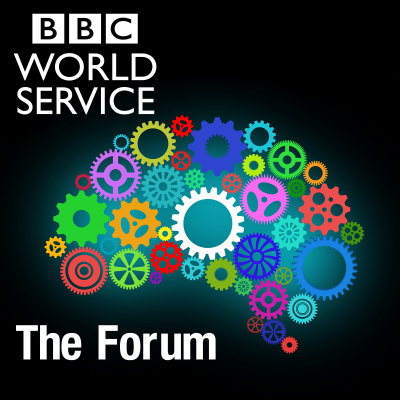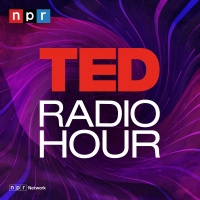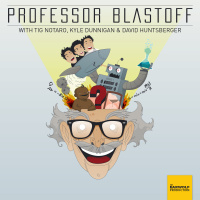Sinopse
A world of ideas
Episódios
-
Fertiliser and poison gas: The legacy of chemist Fritz Haber
04/05/2022 Duração: 40minGerman chemist Fritz Haber's discovery of how to turn atmospheric nitrogen into ammonia is seen as one of the most significant of 20th century science - it enabled the industrial manufacture of fertilisers, which now provide food for up to half the planet's people.But he was also responsible for the development and deployment of poison gas on the battlefields of World War One and is remembered by some as the 'father of chemical warfare'. His was also a life touched by personal tragedy and a struggle against a Jewish heritage that at first threatened to hold back his career, and would later send him into exile.Bridget Kendall examines a life that epitomises science’s capacity to create and to destroy.Contributors:Dan Charles, US journalist and author of ‘Master Mind: The Rise And Fall Of Fritz Haber, The Nobel Laureate Who Launched The Age Of Chemical Warfare’; Shulamit Volkov, professor emerita of European and especially German History at the University of Tel Aviv, Israel; Dr Anthony Travis, senior researche
-
Emperor Nero: Bad boy of Ancient Rome
28/04/2022 Duração: 39minNero fiddled while Rome burned, didn’t he? At least, that’s what the history books tell us. Nero’s image as a depraved tyrant has been handed down to us by three biased sources, written after the emperor’s suicide in 68AD. These sources have informed interpretations of Nero’s legacy ever since, so much so that his involvement in the Great Fire of Rome has become a meme.Recent scholarship has sought to rehabilitate Nero to a certain extent, to try to understand him in the context of his time. He was indeed a man who succeeded in shocking the Roman elite, but also someone who could strike a chord with the public and was well thought of outside the centre of political intrigue.Rajan Datar attempts to separate fact from fiction, with guests Dr Ginna Closs, Associate Professor of Classics at the University of Massachusetts Amherst in the US and author of While Rome Burned: Fire, Leadership, and Urban Disaster in the Roman Cultural Imagination which was published in 2020; and Dr Evan Jewell, Assistant Professor of
-
Mirror Mirror on the wall: The history of the looking glass
21/04/2022 Duração: 39minFor the Ancient Egyptians they were seen as receptacles for the soul, for the Aztecs they were used to tell the future and for the early Christians, they were an aid for reaching self-knowledge. And mirrors’ key role in the reflection of light led to the development of high-powered telescopes to explore the universe. No human invention has been so closely tied with our sense of self and the world around us. And yet mirrors also have a capacity to deceive us – so how much attention should we give them in our lives, and are we overly obsessed with our image in the mirror? Joining Rajan Datar to find out more about the history of mirrors is Dr Elizabeth Baquedano, a specialist in the indigenous cultures of Mesoamerica and Senior Honorary Lecturer at the Institute of Archaeology, University College, London. Dr Franziska Kolt, a post-doctoral research fellow in the history of science at the University of York in England, who’s written Alice Through the Wonderglass: the Surprising Histories of a children's classic
-
Kwame Nkrumah: Ghana’s Pan-African idealist
14/04/2022 Duração: 39minKwame Nkrumah was considered by some as a visionary hero who urged would-be leaders in Africa to embrace the idea of unity for the continent, and led Ghana to independence from British colonial rule in 1957.But in becoming Ghana’s first prime minister, and then president, he was criticised for his autocratic style of government and the way in which he pursued his Pan-African ideology seemingly at the expense of his own people. In 1966 Nkrumah was removed from power in a coup, and never returned to Ghana. Bridget Kendall’s guests include Ghanaian journalist-turned-historian, AB Assensoh, who interviewed Nkrumah in exile. Assensoh is emeritus professor of African American and African Diaspora Studies at Indiana University, Bloomington, and Courtesy Emeritus Professor in the History Department of University of Oregon. He’s the author of many books on Nkrumah, including a collaboration with his wife Yvette entitled Kwame Nkrumah’s Political Kingdom and Pan-Africanism Reinterpreted, 1909–1972. Joining them are Kwa
-
The Truman Doctrine: Beginnings of the Cold War
06/04/2022 Duração: 40minPresident Harry Truman's address to the United States Congress, and the world, in March 1947 is seen by some historians as marking the start of the Cold War.In it, the President committed the USA to the role of defender of global democracy, and pledged to contain the expansion of the Soviet Union and the spread of communism. The Truman Doctrine, as it became known, led to the establishment of NATO and, later, US involvement in conflicts in Korea and Vietnam.But, as Bridget Kendall discovers, the speech and the policy it set out were by no means inevitable - both were shaped as much by misunderstandings and exaggerated fears as they were conflicting ideologies and the actions of the former World War Two allies.Producer: Simon TulettContributors:Melvyn Leffler, Edward Stettinius Professor of History Emeritus at the University of Virginia, USA; Vladislav Zubok, professor of international history at the London School of Economics, UK; Denise Bostdorff, professor of communication studies at The College of Wooste
-
Margaret Fuller: Early feminist and war correspondent
31/03/2022 Duração: 39minIn in her 1843 essay The Great Lawsuit, the American journalist and early feminist Margaret Fuller forcefully argued for the rights of women to work, think and live on their own terms, not just as companions and foils for men. She was one of the first Americans to do so. Fuller was a pioneer in other respects too: a trail blazer for advocacy journalism and for unrestricted female education. In the 1840s she became the first paid US war correspondent, reporting from Rome besieged by the French army. Fuller packed a lot into a life of just 40 years; so much so that after her tragic death in a shipwreck, the men around her - some of them rather famous - did their best to diminish her memory. They exaggerated what they saw as her personal failings and in some instances even falsified her record. As a consequence, we are still discovering the true extent of her life and work.Bridget Kendall talks to three Fuller experts: Megan Marshall, Professor at Emerson College in Boston whose book Margaret Fuller: A New Ame
-
Money: From coin to cryptocurrency
20/03/2022 Duração: 39minFrom Mesopotamian loan records which are over 4,000 years old to the cryptocurrencies of today, money has been with us for a long time. But how did we get from exchanging bits of metal or cowrie shells to the algorithmic trading of shares? Why did paper money originate in Song-dynasty China? Why was the Gold Standard adopted in the 19th Century? And what is money anyway? These are some of the questions that Bridget Kendall investigates with the help of three financial historians: Ute Wartenberg, president of the American Numismatic Society; William Goetzmann, professor of Finance and Management Studies at Yale University; and Christian de Pee, professor of History at the University of Michigan. They also answer listeners' questions about the history of finance.(Photo: Roman gold coins found in Corbridge, UK in 1911. Credit: Universal History Archive/Universal Images Group/Getty Images)
-
Pinocchio: The real story of the mischievous wooden puppet
17/03/2022 Duração: 39minPinocchio is a cultural icon. He is the wooden puppet who can talk and walk. A cheerful headstrong character who keeps breaking the rules, and whose dream is to become a real boy. His story has been the subject of many retellings, and his growing nose when he lies has become a way to satirise politicians the world over. But Pinocchio’s origins are largely unknown outside Italy, and couldn’t be more different from his portrayal in the 1940 Disney film. The original novel The Adventures of Pinocchio by the 19th century Italian writer Carlo Collodi is much darker and brutal, and originally ended with Pinocchio’s execution, but it was also a way of educating the children of a newly unified Italy. The actual literary text also provided a model, which is still used today, for a more standardised form of the Italian language. So why has Collodi’s original – which is one of the most translated books in the world and one of the most adapted – been largely ignored and why should we go back to it? Joining Bridget Kendal
-
The invention of numbers
10/03/2022 Duração: 39minTry and imagine a world without numbers. Telling people how many siblings you have, counting your wages or organising to meet a friend at a certain time would all be much more difficult. If you’re reading this on a digital screen, even these words are produced through a series of zero and one symbols. We take them so much for granted yet some cultures don’t count and some languages don’t have the words or symbols for numbers. This programme looks at when and why humans first started start to count, where the symbols many of us use today originate from and when concepts like zero and infinity came about.Joining Bridget Kendall to explore the history of numbers and counting are anthropological linguist Caleb Everett from the University of Miami, writer and historian of mathematics Tomoko Kitagawa, and Emeritus Professor of Mathematics at Warwick University in the UK, Ian Stewart.Photo: An abacus on a table.(CaoChunhai//Getty Images)
-
Vincent van Gogh: The struggling artist
03/03/2022 Duração: 39minThe Dutch post-Impressionist painter Vincent van Gogh is one of the most influential painters in western art. His series of still life sunflowers are known around the world today but during his lifetime in the 1800s he lived in poverty, selling very little of his work, some say just one painting, and suffered several serious breakdowns. One of his most famous works, The Starry Night, is said to be the view from his room in a French psychiatric hospital where he’d admitted himself shortly after severing his own left ear. This programme looks at the man behind these iconic paintings, explores how and why he became a painter and picks apart the various theories around his death from a gunshot wound at the age of just 37. Joining Bridget Kendall to discuss van Gogh’s life and work are Louis van Tilborgh, Senior Researcher at the Van Gogh Museum in Amsterdam and Professor of Art History at the University of Amsterdam; van Gogh biographer and co-author of Van Gogh: The Life, Steven Naifeh; and British art historian
-
Franz Liszt: Hungarian pianist and painter in sound
24/02/2022 Duração: 40minA proud Hungarian by birth, Franz Liszt was a pioneer both in his piano playing and in his compositions. He was also the nearest thing to a rock star that classical music had in the 19th century. Fans would reportedly swarm over him, try and grab his gloves, even smoke his discarded cigars! Liszt lived up to his public image in his private life, with hectic touring schedules and colourful relationships with numerous women. But he was also generous to a fault – for example, frequently teaching for free - and he was a great champion of other composers.Rajan Datar is joined by three people for whom Liszt and his music occupy a central position in their professional lives: Dr. Rena Mueller, a musicologist emerita at New York University who is working on a complete thematic catalogue of Liszt's music; Dr. Éva Polgár who teaches at Azusa Pacific University in California and is a pianist noted for her championing of not just Liszt's works but all the music from her native Hungary; and professor Kenneth Hamilton, Hea
-
Joseph Heller's Catch-22: A novel of twisted logic and absurd bureaucracy
17/02/2022 Duração: 39min"That’s some Catch, that Catch 22". It’s a novel that gave rise to a new term in the English language and gave voice to American soldiers serving in Vietnam in the 1960s. Since its publication in 1961, Catch-22, Joseph Heller’s best-selling novel, has not only come to symbolise the cynical self-serving aspect of war run as a business, but also the way an ordinary person can be trapped and controlled by bureaucracy and social rules, in whatever area of life. It’s a novel that’s sold tens of millions of copies, and it continues to engage new readers. So, what is the secret of its success? Bridget Kendall is joined by the American novelist and friend of Joseph Heller, Christopher Buckley; Dr Beci Carver, lecturer in 20th century literature at Exeter University, whose forthcoming book is Modernism’s Whims; and Tracy Daugherty, author of Just One Catch: A Biography of Joseph Heller, and Emeritus Professor at Oregon State University in the US. With the contribution of Patricia Chapman Meder, the author of The True
-
Sofya Kovalevskaya: The eventful life of a maths pioneer
10/02/2022 Duração: 40minIf you were a woman in the mid-19th century, some universities might let you attend public lectures on science, but very few would enrol women as regular students. The number of women allowed to sit exams and get academic degrees was vanishingly small. In mathematics it was almost unheard of. But the Russian mathematician Sofya Kovalevskaya changed all that. She was one of the first women in modern Europe both to gain a doctorate in mathematics and become a tenured professor. She was also the first woman to be part of the editorial committee of a leading mathematics journal and the publicity around her achievements helped pave the way for women to play a greater role in university life. Above all, she was an outstanding mathematician with at least one theorem bearing her name still used to this day.So how did Kovalevskaya do it? How much was talent? How much luck and opportunity? And how much just sheer force of character?To guide us through Sofya Kovalevskaya’s eventful life - and her equations – Bridget Ke
-
Machu Picchu: Secrets of a forgotten city
03/02/2022 Duração: 39minThe ancient Inca town Machu Picchu is now the most visited tourist attraction in Peru – and yet it lay nearly forgotten for over three centuries until American and Peruvian explorers drew the world's attention to it in the 1910s. And despite a century of excavations at the site, there are still many unanswered questions about Machu Picchu: why was it built in the first place, who were the immigrants that made up a large proportion of the town’s population, and why was it abandoned so quickly.To find out more about Machu Picchu, Bridget Kendall is joined by leading archaeologists of the Inca civilisation Lucy Salazar and Michael Malpass, the celebrated mountaineer and explorer Johan Reinhard and by writer Mark Adams who retraced the steps of the 1911 expedition led by Hiram Bingham that put Machu Picchu back on the map.(Photo: Machu Picchu, Peru. Credit: Eitan Abramovich/Getty Images)
-
Pleasure and pain: The philosophy of Jeremy Bentham
27/01/2022 Duração: 39minHow do you approach the decisions you make in life? Do you think about them in terms of the maximum pleasure and minimum pain that any choice would lead to for yourself and others around you? If so, you are beginning to think along similar lines to the influential British philosopher and reformer Jeremy Bentham with his concept of Utilitarianism. This was not Bentham’s only contribution to radical thought. With the prison and judicial systems, with education, women’s suffrage, animal rights and the monarchy, throughout his life he came up with a huge body of work that challenged the status quo and still feels relevant today. Rajan Datar is joined by three expert guests to guide us through the life and work of this remarkable thinker: professor Philip Schofield from University College London who is both the director of the Bentham Project and the general editor of the Collected Works of Jeremy Bentham; Emmanuelle de Champs who is professor of British history and civilisation at CY Cergy Paris University,
-
Copper: From mining to microprocessors
20/01/2022 Duração: 39minCopper is a metal that has been with us since the dawn of civilisation. The Romans used it to build their empire, and its high thermal and electrical conductivity led to the 19th century discovery of how to generate electricity and a revolution in telecommunications. Copper was even used to build the Statue of Liberty in New York, and it’s because of copper’s tendency to oxidise that the statue is no longer shiny brown but green. Today we still depend on this 'eternal metal', so called because it doesn’t decay or rust, and it has become a staple and necessary component in new green technologies like solar power and electric cars. But extracting copper has always been very damaging to human health and the environment - so how has our relationship with copper changed over the centuries? Joining Rajan Datar to find out more about copper past and present is Nikita Sud, Professor of Development studies at Oxford University and the author of The Making of Land and The Making of India; the archaeologist Dr William P
-
Writer Agatha Christie: Murder and mystery
13/01/2022 Duração: 39minAgatha Christie put her decision to become a writer down to a lack of education and a capacity for day-dreaming. Her murder mysteries, full of ingenious plot twists, are still regarded by many as the finest examples of crime fiction and have sold in their billions in the English language and in translation.Although the world she depicts is considered by some to be cosy and genteel, and her plots formulaic, a new generation of screenwriters is bringing out the darker side of Christie’s imagination. So what accounts for her continuing global success, when today’s crime fiction tends to be grittier and more realist?Bridget Kendall is joined by Dr Michelle Kazmer, Professor in the School of Information at Florida State University, who’s combined a lifelong passion for crime fiction with study into how we use information – such as clues or evidence; Dr Mark Aldridge, Associate Professor of Film and Television at Solent University and the author of Agatha Christie on Screen and Poirot: The Greatest Detective in the
-
Boudica, warrior queen
06/01/2022 Duração: 39minBoudica, also known as Boadicea, was a member of Iron Age aristocracy in Roman occupied England and her husband was the ruler of the Iceni people. When he died in around 60AD, Boudica, driven by Roman brutality, led a rebellion against the Roman army and marched on London. It was a ferocious attack that nearly drove the Romans out of Britain before Boudica was finally defeated. Today, she is an iconic and sometimes controversial figure. To explore Boudica, Bridget Kendall is joined by professors Richard Hingley and Miranda Aldhouse-Green and Dr. Jane Webster.(Image: Detail from Boadicea Haranguing the Britons by William Sharp, after John Opie, line engraving, published 1793. Credit: by Hulton Archive/Getty Images)
-
Harry Houdini: Escape artist and showman
30/12/2021 Duração: 39minHarry Houdini’s story is the classic American tale of an immigrant who from impoverished beginnings made it big in the United States. Perhaps it is this early hand to mouth existence in a large family which explains his extraordinary drive to succeed. Captivated by magic shows, he began performing tricks on stage with one of his brothers, and then with his wife. Houdini’s decision to make escape the focus of his act was well-timed, chiming with the public mood for sensational trickery. Whether it was escaping from handcuffs, a straitjacket or from a box filled with water, Houdini wowed audiences with his seemingly death-defying performance. So what motivated this complex man who spent a lifetime ‘deluding’ the public with his illusions, and how did he reconcile that with his campaign against the Spiritualist movement which he regarded as a racket?Rajan Datar charts the life and career of the legendary Houdini, with writer and biographer Adam Begley, whose book Houdini: The Elusive American was published in 2
-
Antarctic Treaty: Protecting the icy continent
23/12/2021 Duração: 38minIt’s widely regarded as the most successful treaty in the world, and it was the first arms control agreement established during the Cold War. The Antarctic Treaty, which came into force in 1961, protects what is one of the most unspoilt places on earth, from mining, from military activity and allows only scientific exploration and peaceful pursuits. It was thanks to the treaty and research carried out in Antarctica that scientists identified a hole in the ozone layer in the 1980s, but it’s been most powerful as a symbol of what can be achieved to create peace between nations and give wilderness protection. So what has made this treaty so effective, and can it still hold up today in a world which is hungry for minerals and where an increasing number of states are seeking to project their technological and scientific prowess in Antarctica?Joining Bridget Kendall is Birgit Njaastad, the Chair of the Committee for the Environmental Protection of the Antarctic, and for more than 25 years a Norwegian Polar Institut









